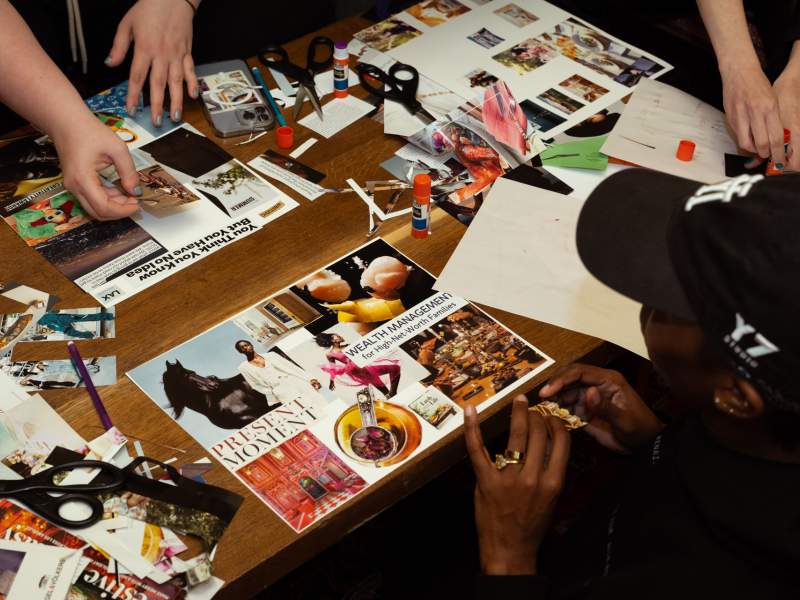Parting Ways With Waste: Simple Steps Toward a Plastic-Free Future
From Plastic Free July to the UN Plastics Treaty nearing finalization, the momentum around plastic reform continues to build. But with so many facets of the problem (and potential solutions) it’s easy to feel overwhelmed. That’s why we’re focusing on simple, scalable changes that add up to meaningful impact.

We’ve arrived at another Plastic Free July, an entire month dedicated to fighting the worldwide plastic pandemic. This month always inspires us to take a step back and ask ourselves, “How did we get here?”
It’s undeniable that plastic waste is a massive global problem, and it’s quite astonishing that this material has made such a mark on our planet in such a short amount of time. This is largely due to the fact that one plastic bottle can take over 450 years to decompose.
Plastic is a relatively young synthetic material—its mass production began only 150 years ago. Since then, so many different factors and events have shaped plastic’s journey. From World War II to the rise of single-use packaging and plastic grocery bags, we’ve arrived at a time when plastic production has grown to 380 million tons per year.
This should give us some hope that something that got out of hand so quickly can be reigned in quickly too. So, what can we do to be part of the solution to plastic pollution?
We all should avoid single-use and other unnecessary plastics.
It’s estimated that:
- Over the last 30 years, plastic consumption has quadrupled.
- 50% of plastic ends up in landfills, 19% ends up in incinerators, and 22% evades waste management altogether, entering uncontrolled dump sites that eventually pollute delicate ecosystems, usually in poorer countries.
- 30 million tons of plastic waste have entered seas and oceans, while 109 million tons have accumulated in other bodies of water.
Knowing this, it becomes clear that we all must do our part to stop contributing to the plastic pollution problem.
Scaling Impact in 2025:
At 1 Hotels, we continue to reimagine what sustainable hospitality can look like—eliminating plastic waste not just at the surface level, but from the ground up. From in-room amenities to back-of-house operations, we’re taking thoughtful steps to design waste out of the system entirely. To be more specific:
- All 1 Hotels have eliminated single-use plastic water bottles, offering PATH refillables and hydration stations instead.
- 1 Hotels feature building-wide filtration systems, in-room refillables, or floor-level hydration stations to support accessible, low-impact hydration.
- All of our properties use plastic-free reusable wooden key cards and stone privacy signs in guest rooms—no plastic, no compromise.
- Our guest rooms are stocked with recycled glassware, aluminum coffee pods, ceramic mugs, and large-format refillable bath products—no minis, ever.
- In our onsite dining spaces, we’ve committed to 100% reusable foodware, ensuring zero disposables while you dine.
- Our Certified Sustainable Gatherings program remains a powerful framework for low-waste events, designed to eliminate single-use plastics and divert 90%+ of waste from landfill.
- We’ve partnered with Oceanic Global to advance ocean education and reduce plastic pollution. Our funding supports community programs like short film festivals, wellness and art events, and children’s materials, while also helping expand the Blue Standard through free sustainability tools and pro-bono consulting for businesses in frontline climate regions.
- Across all 1 Hotels, zero-waste programs have been fully implemented, with each property actively on track toward full zero-waste certification.
- Outside our sanctuaries, beach and park cleanups engage guests and team members alike, preventing plastic pollution before it enters fragile ecosystems.
- In our sourcing, we continue to prioritize natural materials in everything from furniture to linens, knowing that true sustainability goes far beyond packaging.
We encourage (and hopefully inspire) other brands in the hospitality industry to phase out single-use plastics wherever possible. We’ve always believed in doing what’s best for the planet before it’s required through regulations, and we encourage everyone else to do the same.
We admire our partners at Pathwater, Bamford, Foodprint Group, Oceanic Global and Audi for adopting the same mindset and helping us set the stage for positive change in the industry.
What can you do?
Now, what are some things you, as an individual, can do to participate in Plastic Free July and promote a plastic-free future?
- Take inventory. How much plastic are you actually using throughout your day? How much of it is easy-to-replace, single-use plastic? We recommend splitting up your “inventory check” room by room to reduce overwhelm. How much plastic are you using in your bathroom? Your kitchen? Awareness is the first crucial step to making real, lasting change.
- Swap as you go. It’s important that you don’t just throw away products that are packaged in plastic. That wouldn’t be sustainable at all—we want you to enjoy these products thoroughly. As outlined in our previous article, Five Simple Steps Towards a Zero-Waste Home, we encourage you to swap as you go. Once your plastic-packaged honey runs out, replenish it with local honey that’s packaged in a glass jar. Repeat this process for all of your easy-to-replace products packaged in plastic. The Plastic Free July website also has a lot of simple swap ideas to get you started!
- Bring your own. Make yourself a zero-waste kit that you can use on the go. Fill it with reusable bags (produce, grocery, etc.), cups, cutlery, straws, hand sanitizer, and more. Keep it in your car, so you have it on hand for spontaneous outings.
- Master your mindset. Reducing your plastic footprint does not require perfection. We encourage you to adopt the mindset that every little swap counts. We follow this mindset in our hotels, too! Also remember, what’s good for the planet is also good for you. By reducing plastic in your daily routine, you’ll reduce the amount of plastic that reaches your local landfills and water supplies—which means healthier spaces and water sources for you and your neighbors.
- Explore resources to keep the momentum going. Don’t let the momentum stop after July. Continue to learn about the plastics problem and other environmental issues by reading The Field Guide and exploring other amazing resources provided by passionate environmentalists at Oceanic Global, How to Save a Planet, Intersectional Environmentalist, and beyond.
- Choose optimism. While the failures of plastic recycling and the complexity of plastic bans are overwhelming, we encourage you to focus on the positives. In the last few years alone, we’ve seen exciting innovations that have a lot of potential to help us in the fight against plastic pollution. With produce bags made from vegetable starch and oil, groundbreaking mushroom-based sustainable packaging, and new software solutions that automate waste analysis, it’s already clear that when we combine our strengths, we can come up with creative and promising solutions to the plastics problem.
Always remember, it’s never too late to reduce your plastic footprint. Every single purchase is an opportunity to reduce your plastic consumption and set an example for those around you. Plus, we think it’s cool to care and prepare before a new law requires you to.
Plastic recycling is not a realistic long-term solution.
Let’s dive a little deeper into why we should avoid plastics altogether, instead of relying on plastic recycling as a viable solution.
Data has shown that plastic recycling is not the answer, as less than 10% of post-consumer plastic waste is actually recycled around the world. Below are a few reasons why this is the case.
- There are thousands of different plastics, all with different compositions that can’t be recycled together. In many places, a clear PET#1 bottle and a green PET#1 bottle can’t even be recycled together—let alone all of the different HDPE, LDPE, PP, PVC, and PS types.
- The reprocessing of plastics (if possible) is extremely wasteful. With their toxic additives and chemical treatments, many plastics can’t be reprocessed into food-grade or consumer-safe products.
- Recycled plastic costs more than virgin plastic. This deters many companies and consumers, as they won’t see an immediate economic benefit when presented with recycled-plastic options.
Yet plastic companies continue to push the idea that plastic recycling is an acceptable answer, and that there’s nothing wrong with the current plastic production rate of 380 million tons per year.
We encourage you to challenge these messages and consider what the experts are saying—that plastic recycling, while not entirely without merit, is not the long-term solution.
Plastic bans must be carefully considered.
Knowing plastic recycling isn’t a viable long-term solution, it becomes tempting to want to ban plastics altogether.
Plastic bans have played and will continue to play a critical role in plastic reform. But because of the complexity of the plastics problem, we must all acknowledge that there are areas where plastic bans will be effective—and areas where they will likely cause unintended issues.
The truth is, we need certain plastics in parts of our modern society, and eliminating them completely could introduce a myriad of unintended consequences. As an example, lightweight plastics are critical to increasing fuel efficiency in the transportation sector. If we replaced these plastics with alternative materials, would these new materials be more sustainable over the vehicle’s entire lifecycle? Which communities would be most impacted by this swap as a result of the associated emissions, disposal, toxicity, and labor?
This is not to say that plastic bans won’t have their place—they absolutely will, especially for single-use plastics. Take the plastic bans below as examples.
- Canada: Recent regulations prohibit the manufacturing and importing of common single-use plastics such as grocery bags, cutlery, food service containers, ring carriers, and straws. By the end of 2025, Canada will also prohibit the export of six categories of plastics. This world-leading ban will eliminate an estimated 1.3 million tons of difficult-to-recycle plastic waste and over 22,000 tons of plastic pollution—an exciting model for the rest of the world.
- California: The state’s legislation aims to reduce single-use plastic production while increasing recycling rates. By 2032, all single-use packaging (plastic, metal, and paper) must be recyclable or compostable, the statewide recycling rate must increase to at least 65%, and plastic producers must reduce their plastic packaging by 25%. On top of this, plastic producers are required to donate $5 billion over the next several years to mitigate the effects of plastic pollution primarily in low-income communities.
- Nine More US States: In 2023, Connecticut, Delaware, Hawaii, Maine, New Jersey, New York, Oregon, Vermont, and Washington all had some form of statewide ban on single-use plastic bags. In 2024, Colorado and Rhode Island did the same. Experts estimate that these bans can eliminate an average of about 300 plastic bags per person per year!
- India: The first stage of this ban began two years ago, making it illegal to produce, import, stock, or sell 21 plastic items, ranging from straws to ice cream sticks. While this leaves out thousands of other plastic products, the government has set targets for manufacturers to responsibly recycle or dispose of such products after use. This legislation is a critical step in India’s journey to reduce greenhouse gas emissions in economic activity by 45% over the next eight years.
Don’t forget, the UN Plastic Waste Treaty is still in the works too, and its goal is to outline a global commitment to reducing plastic production and consumption by the end of this year. We’re thrilled that governments are starting to catch on, and we hope that these milestones will inspire the rest of the world to engage in plastic reform as well.
Hang on to hope.
We don’t wish to discourage you by exploring the flaws of plastic recycling and the complexity of plastic bans. We hope this information guides you in the right direction, so you can focus your time and energy on methods and movements that propel us all forward in the fight against plastic pollution.
When we combine personal efforts (on the individual and industrial levels) with bans that prohibit unnecessary plastics while increasing regional recycling rates, we have a well-rounded plan of attack against the global plastics problem.
The solution may not be simple, but it’s still within reach.












